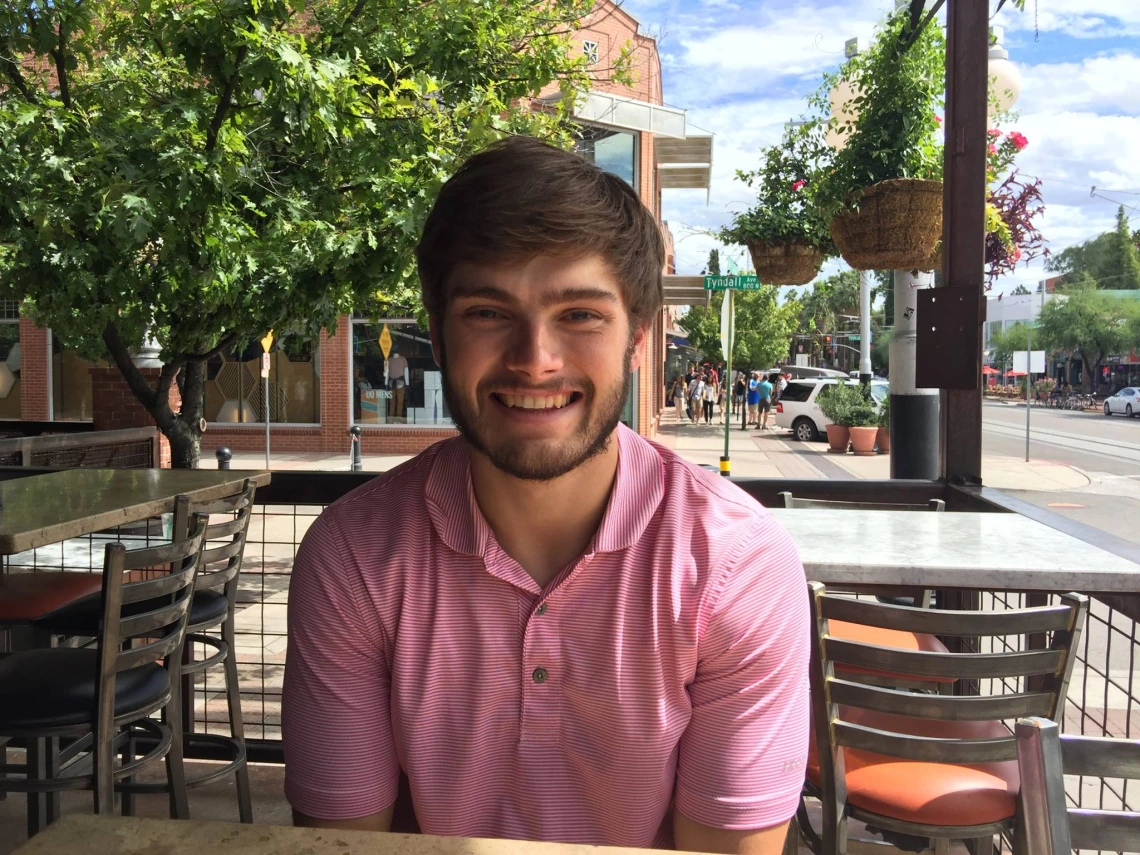CIRTL Spotlight: Steven Petritis, Chemistry

Meet some of our outstanding CIRTL members and find out why they joined CIRTL@UArizona!
Steven Petritis graduated with his B.A. in chemistry from Grinnell College and is now a sixth-year chemistry Ph.D. candidate in the Department of Chemistry and Biochemistry (CBC) at the University of Arizona. His current research involves researching methods for increasing student engagement in organic chemistry labs, with an emphasis on teaching argumentation and examining factors that impact the student laboratory learning environment. Steven is also working towards his Certificate in College Teaching (CCT) with the Office of Instruction and Assessment (OIA) and has been an active Faculty Learning Community (FLC) participant for the past two years.
Tell us a little bit about your interest in teaching. What’s your background? What are your career interests?
From a young age, I always knew that I loved to learn. After several tutoring and teaching assistant experiences in high school and at my undergraduate institution, it became apparent to me that exciting others about learning was a second passion of mine. Needless to say, the chance to continue my education in chemistry at the graduate level while teaching undergraduate chemistry laboratory courses was an opportunity I could not pass up.
Fortuitously, my two passions for teaching and learning have joined together in the chemistry education research program here at the University of Arizona. The opportunity to research teaching and learning in chemistry has been life-changing and has helped me chart a path for a career in education and educational research. I hope to channel all my experiences in chemistry and with teaching into a career that further bridges the gap between educational research in the sciences and the instructional practices and learning that occurs everyday in our increasingly diverse classrooms.
Why did you get involved in CIRTL? What initially interested you in joining?
I first learned about CIRTL when I was approached by Dr. Gail Burd (Senior Vice Provost, Academic Affairs, Teaching and Learning) and was asked to serve as the graduate student representative on the CIRTL Steering Committee as UArizona put together our application to join the nationwide CIRTL network. Through my initial conversations with Dr. Burd, I quickly learned that my thoughts and feelings about the importance of teaching and learning were very well aligned with both UArizona’s goals and the CIRTL Network vision for preparing the next generation of teaching scholars of higher education.
One especially interesting feature of the Network that caught my attention was the teaching-as-research opportunities embedded in CIRTL’s core values. As an up-and-coming science education researcher, I have become fascinated with reflecting on the impact of instructional practices on student experience with their learning environment and strive to improve teaching pedagogy to better suit the needs of student learners.
What do you enjoy about being in CIRTL so far? How have you gotten involved?
Although I am still in the early stages of my involvement in CIRTL, what I have enjoyed the most so far is the supportive and energized community of faculty and practitioners that comprise the UArizona CIRTL Network. The people involved with CIRTL truly understand the value of learning about teaching and how to improve instruction, especially as it pertains to the ever-changing needs of an increasingly diverse undergraduate student population at the University of Arizona. I am excited to partake in the CIRTL Faculty Learning Community (FLC) this semester and continue to learn and grow as an aspiring college-level educator.
What advice would you give to new or prospective members?
Take the leap and follow your passion for teaching and learning! The educational community, especially here at the University of Arizona, is filled with people who are excited about researching teaching, learning about improved instructional methods, and are passionate about evidence-based educational reform. On top of that, there is so much still to learn in the world of teaching and learning. Joining the CIRTL community is one of many ways to interact with the educational community and the work involved with the Network will certainly lead to a whole new perspective on the impact of education and the need for continued improvement within our classrooms and teaching laboratories.

